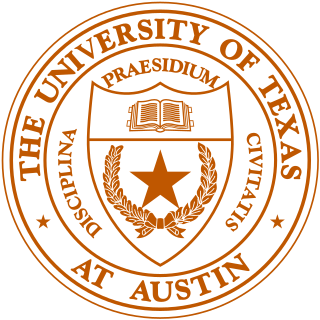
Margaret Thaler Singer was a clinical psychologist and researcher with her colleague Lyman Wynne of family communication. She was a prominent figure in the study of undue influence in social and religious contexts.

Eileen Vartan Barker OBE, is a professor in sociology, an emeritus member of the London School of Economics (LSE), and a consultant to that institution's Centre for the Study of Human Rights. She is the chairperson and founder of the Information Network Focus on Religious Movements (INFORM) and has written studies about groups she defines as cults and new religious movements (NRMs).

A new religious movement (NRM), also known as a new religion or alternative spirituality, is a religious or spiritual group that has modern origins and is peripheral to its society's dominant religious culture. NRMs can be novel in origin or part of a wider religion, in which case they are distinct from pre-existing denominations. Some NRMs deal with the challenges posed by the modernizing world by embracing individualism, whereas others seek tightly knit collective means. Scholars have estimated that NRMs now number in the tens of thousands worldwide, with most of their members living in Asia and Africa. Most have only a few members, some have thousands, and a few have more than a million members.
CESNUR, is an organization based in Turin, Italy. It was established in 1988 by Italian attorney Massimo Introvigne. It has been described as "the highest profile lobbying and information group for controversial religions".

John Gordon Melton is an American religious scholar who was the founding director of the Institute for the Study of American Religion and is currently the Distinguished Professor of American Religious History with the Institute for Studies of Religion at Baylor University in Waco, Texas, where he resides. He is also an ordained minister in the United Methodist Church.

Massimo Introvigne is an Italian patent/trademark lawyer and independent scholar. He is a founder and the managing director of the Center for Studies on New Religions (CESNUR), a Turin-based organization which has been described as "the highest profile lobbying and information group for controversial religions".
David G. Bromley is a professor of sociology at Virginia Commonwealth University, Richmond, VA and the University of Virginia, Charlottesville, VA. He has written extensively about cults, new religious movements, apostasy, and the anti-cult movement.
The anti-cult movement is a social group which opposes any new religious movement (NRM) that they characterize as a cult. Sociologists David Bromley and Anson Shupe initially defined the ACM in 1981 as a collection of groups embracing brainwashing-theory, but later observed a significant shift in ideology towards pathologizing membership in NRMs. One element within the anti-cult movement, Christian counter-cult organizations, oppose NRMs on theological grounds and distribute information to this effect through church networks and via printed literature.
Anson D. Shupe, Jr. was an American sociologist noted for his studies of religious groups and their countermovements, family violence and clergy misconduct. He was affiliated with the New Cult Awareness Network, an organisation operated by the Church of Scientology, and has had at least one article published in Freedom magazine.He is very against cults which pose heratic threats.

Stephen A. Kent, is a Professor in the Department of Sociology at the University of Alberta in Edmonton, Alberta, Canada. He researches new religious movements, and has published research on several such groups including the Children of God, the Church of Scientology, and newer faiths operating in Canada.
Ronald M. Enroth has been a Professor of Sociology at Westmont College in Santa Barbara, California, prominent evangelical Christian author of books concerning what he defines as "cults" and "new religious movements" and important figure in the Christian countercult movement.
The academic study of new religious movements is known as new religions studies (NRS). The study draws from the disciplines of anthropology, psychiatry, history, psychology, sociology, religious studies, and theology. Eileen Barker noted that there are five sources of information on new religious movements (NRMs): the information provided by such groups themselves, that provided by ex-members as well as the friends and relatives of members, organisations that collect information on NRMs, the mainstream media, and academics studying such phenomena.

Misunderstanding Cults: Searching for Objectivity in a Controversial Field was edited by Benjamin Zablocki and Thomas Robbins. The book was published by University of Toronto Press, on December 1, 2001 and includes contributions from ten religious, sociological and psychological scholars.

The Politics of Religious Apostasy: The Role of Apostates in the Transformation of Religious Movements is a 1998 book edited by David G. Bromley. It presents studies by several sociologists of new religious movements on the role played by apostates The volume examines the apostate's testimonies, their motivations, the narratives they construct to discredit their former movements, and their impact on the public controversy between such movements and society.
Thomas Robbins is an author and an independent scholar of sociology of religion.
Benton Johnson is an American sociologist and professor emeritus of the University of Oregon's Department of Sociology.
Lorne L. Dawson is a Canadian scholar of the sociology of religion who has written about new religious movements, the brainwashing controversy, and religion and the Internet. His work is now focused on religious terrorism and the process of radicalization, especially with regard to domestic terrorists.
Dick Anthony is a forensic psychologist noted for his writings on the validity of brainwashing as a determiner of behavior, a prolific researcher of the social and psychological aspects of involvement in new religious movements.











